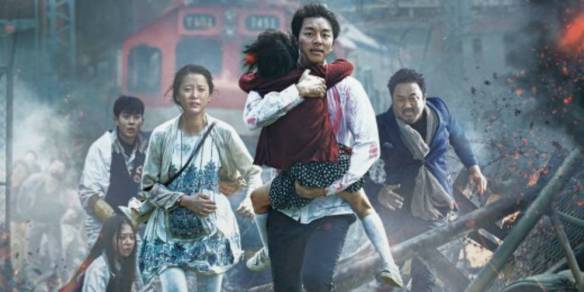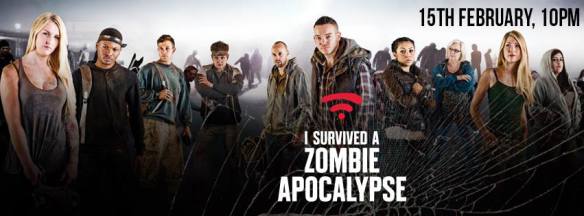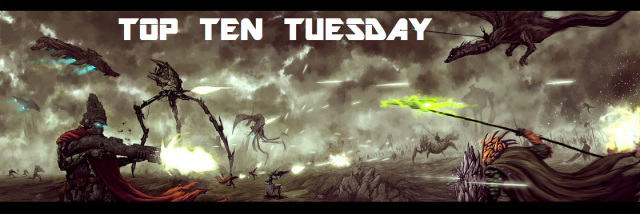There is something truly apocalyptic in the air. A fearful isolationist politics grips the UK as it seeks to quarantine itself from dangerous of Outsiders, while in the United States, a walking punchline has become President as American liberals have found to their cost that you can’t just laugh a Nazi off the ballot. The Right across Europe is on the rise, with neo-fascists projected to fair well in polls in France, Germany and the Netherlands, my new home. Never in my lifetime (I was born at the end of 1990, so the Cold War was literally ending) has the end of days felt so near – and in a strange way so welcome. With 2017 playing out like a cadaverous Reaganite tribute act, if there were hypothetically a zombie pandemic tomorrow, what would my interests be in preventing it? It’s the perfect time for a rebirth of a genre which had stagnated badly over the past two years.

After two decades laying dormant, the early 2000’s saw the triumphant return the zombie – a cultural phenomena that had been buried by Regan’s reddening (Republican red, not Commie red) of American cinema. Finally, the ghastly zeitgeist of the apocalypse returned to our screens, and we were treated to what has since been termed “the Zombie Renaissance,” over a decade of innovative and above all socially cutting genre cinema. Danny Boyle gave us a now seemingly prescient view of an isolationist Britain in 28 Days Later, The Returned and In the Flesh considered the persecution of the Other through an undead lens, Robert Kirman gave us a world that kept breaking down on the same old lines in The Walking Dead, and George A. Romero even returned to deliver us the ultimate class satire in Land of the Dead . We even got to participate – Colin showed us we could make our own films on a shoe-string, while the Left4Dead video games gave us an eery opportunity to walk through the streets of a digital pandemic. Life for fans of the genre was just peachy, until 2014. Then, to quote Bill, things went “to hell in a handcart, real fast.”

Bill was one cool SOB.
The warning signs had been on the horizon since World War Z (2013) – conservative studios had finally been persuaded of the zombie’s market-clout, and they wanted a piece of the pie. These were not people who intervened in the genre for love, but for greed, they had no understanding of the cultural signifier they had acquired the rights to, no respect for it – rather like the repugnant petit-bourgeois underground in Land of the Dead, they just want to make corpses dance about for easy money. It began a regrettably inevitable trend – as the zombie became increasingly the property of wealthy executives, their ideological fingerprints were soon smeared all over it. Those of you who love zombie movies will remember the period from June 2014 to October 2016 as the hell they were.
First, BBC3 – in an effort to make itself less of a ‘financial risk’ axed the edgy, thought provoking In the Flesh – in which we were forced to confront how society has dehumanised conceptions of minorities – and put the money saved toward a new “reality” series – I Survived the Zombie Apocalypse. ISTZA was awe inspiringly backward in it’s complicity to this construction of the Other; and Rotters who a few months ago we had been relating to as homosexuals, the disabled, refugees and the homeless, were suddenly fair game for a band of insufferable narcissists who presumably failed the Big Brother psyche exam, but were just lucid enough to scream abuse at poorly paid scare actors for a gormless audience of 3am stoners.

Never forget, the BBC used your money to pay for this.
At the cinema meanwhile, things went downhill fast, dramatically. Having thrown everything at World War Z, studio execs had run out of ideas, and reverted to type. “Where can we go from here?” their deranged hive-mind asked itself, “We know… sex and stupidity always sell – why not completely debase this cultural icon we have no understanding of?” The Boy Scout’s Guide to the Zombie Apocalypse (2015… somehow) introduced frat-boy humour to the mix – with ‘jokes’ so outdated it felt like the film should have starred the cast of Without a Paddle including the “I have to grab that zombie’s boobs because I am a virgin” classic.
The zombie renaissance was buried. But not before the regrettable January release of Pride and Prejudice and Zombies (2016), in which the metaphorical fear of the ruling class, that one day we unwashed masses might rise up, was played out literally, for a laugh. So from the mind of a literary Barry Shitpeas (for this was based on a book – a book) we were treated to 90 minutes of corseted aristocrats searching for a husband while fighting to seal the entire British proletariat behind a wall round the slums of London. Charles Dance was in it as a protagonist. Charles Dance is never the protagonist. Why? Because he represents a higher social class, and is therefore can be used to get a largely common audience who are themselves exploited by that class to empathise with the lead character. Learn the rules!
I digress. 2016 was a foul year. There were election results with grave global implications, and everything and everyone that was any good in the world suddenly seemed to be dying. Things were desolate, but the scene was set for a return. Both Train to Busan and The Girl with All the Gifts were released in the UK in October – however I didn’t see them until their Dutch premieres at the International Film Festival Rotterdam – with the added insight of considering them and 2016 retrospectively. Two things struck me about about the films.
Neither film was entirely original – Train to Busan bears a stark resemblance to World War Z, particularly through the tumbling tidal wave of the infected swarm which perform impossible physical feats as a collective, while The Girl with All the Gifts owes a great deal to video game The Last of Us (2013, released before the book The Girl with All the Gifts is in turn based on), as the “hungries” are victims of a fungal infection, which the death of one girl stands to universally reverse. What interests me though, is that these are not timid fan-fictions seeking to emulate their inspiration – these are brave, radical re-imaginings, that reclaim the zombie horde from conservative narratives for the purpose of social commentary – an integral part of the genre.

This is getting a sequel in 2017, sadly.

Looks kind of familiar, right?
Train to Busan takes the incredible strength and versatility of the horde and wrestles it from WWZ’s narrative which included justifying Israel’s walls as “zombie protection” – the same walls that were built to segregate Palestinians, treated as Other in their own homeland. TtB gives us a beautiful and simple antidote to this with a pure moment of commentary. Our survivors, who have battled through several carriages of the infected, find themselves at last in First Class, which was sealed at the first sign of danger, sealing hundreds of people in their doom, naturally. Our heroes rightly confront the businessman who has asserted himself as head of the First Class passengers, chastising him for abandoning so many people to their death. His response? He labels them infected and leads calls to shun them, which the other privileged travellers soon take up. In a moment that transcends language or national borders, a metaphor that should speak to audiences world wide, these refugees are shunned, and forced to continue their journey through the train, by the cowering elite of wealthy passengers who because of their class’ ideology can see no difference between innocent ordinary people, and the salivating rabble in the other carriages.
Needless to say, in the film at least, the elite are punished for their stunning lack of empathy, but that is beside the point. This is a zombie film making a comment on classism, and on the global refugee crisis that ‘developed’ nations continue to turn their backs on for fear of terrorist bogeymen – and it is a comment that transcends those same arbitrary borders because it is such a clearly sign-posted piece of genre. There is talk of an English remake – it is entirely unnecessary. I watched this film in Korean with Dutch subtitles; and without speaking either I understood it clearly enough to be moved without it becoming predictable. That’s perfect cinema, that’s the power that this genre – and a sign that the zombie now more than ever has a future as the cultural artefact of our time.

That brings me to The Girl with All the Gifts, which draws upon but also contrasts video game The Last of Us. TLoU may feature similar fungal zombies, but it is an action-focused exploration of a city reclaimed by nature that does little to address any serious moral questions. When it does, it handles them clumsily. Main character Joel delivers Ellie, a girl immune to infection, to a team of scientists. On discovering the only way to create a vaccine is for them to kill her, he murders all the scientists while Ellie lays unconscious, for the sake of his own companionship. Neither he nor the scientists really seem to think they should ask her what she wants. The story is entirely about two forms of continuity which we don’t even choose between in the end; either the patriarchal microcosm of Joel’s displaced and overbearing fatherhood on a local scale, or the return of “normality” where establishment scientists and the military take on that role on a global scale.
The Girl with All the Gifts on the other hand, sacrifices style for substance. It is something of a missed opportunity that director Colm McCarthy – perhaps hindered by having only directed for television previously – opted not to do something more interesting with post-apocalyptic vistas. For all we get to see, this “pandemic” could be confined to a shopping centre in Milton Keynes. Fortunately, the memorising score by Utopia’s Cristobal Tapia de Veer builds enough of an atmosphere that you can forgive this, while the an altogether more interesting moral dilemma unfolds. Melanie, a young girl born from an infected mother, live in symbiosis with the fungal infection that has turned millions of people into killing machines. While she also becomes dangerous when hungry, she is capable of managing her needs – and discovers that she is not alone, encountering feral children who are capable of living alongside “hungries” without being endangered, while being free from the confines of the toxic military rule that has confined her to a prison cell for life. The climax presents us with a similar conundrum to TLoU as an “evil scientist” (International Film Festival Rotterdam may have spoiled that one in their synopsis) played by Glenn Close attempts to harvest Melanie’s brain to create a cure. The difference is that Melanie is awake to make the choice herself. She is presented with two options; either dying and returning the world to a normality where her kind are no longer permitted to exist, or remaining in an overbearing authoritarian relationship with military personnel who until recently referred to her as an “abortion” – and looking for another solution.

Melanie chooses a third option instead – finding a way to irreversibly spread spores of the fungus across the world, ending life as we know it. With the former power structures of late capitalist society obliterated, and no horses or kings men to put them back together again, Melanie and her new breed of humanity are free to create a new life for themselves.It is an ending that doesn’t please everyone – but as an antidote to Hollywood disaster cinema, where the ending must always ultimately re-assert the dominance of the status-quo, the fact TGwAtG doesn’t try to put everything back the way it was is a revolutionary statement. That’s the intoxicating allure of what my friend Professor Alexandra Nakelski would call “the auspicious apocalypse,”and one I’d argue that the zombie genre is the best suited of all to present. What exactly is our motive for saving the rotten and corrupt prisons that our institutions of nation, state and capital have become? Why should we sacrifice any more of ourselves to give a different liar access to the nuclear launch codes? Why is it in my interests to help the fabricated country of the United Kingdom “succeed” through Brexit when it’s success will be defined by the number of foreigners it can eject? Let the horde tear it all down and we’ll build something new. The realisation of that might be a way off, but that thirst for change will grow and be reflected in cinema, particularly as 2017 continues to unfold as grimly as 2016, so the resurrection of the zombie renaissance seems inevitable.
Advertisements Share this:





